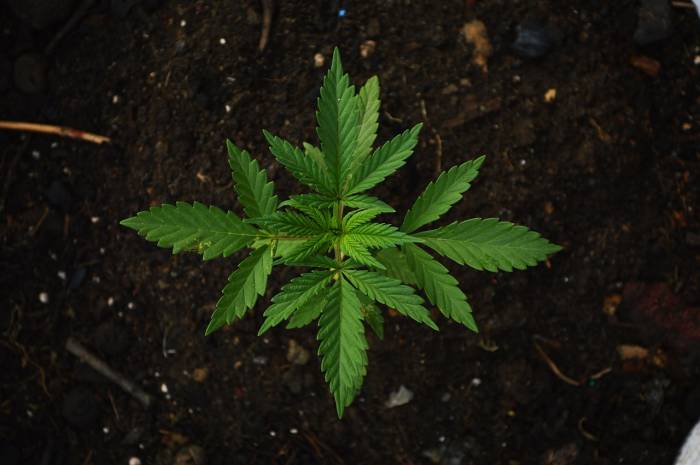Few subjects in the health space these days generate as much controversy—and are the cause of as much confusion—as medical marijuana. But marijuana is having a moment. As more states legalize its use, it’s more important than ever to understand exactly what medical marijuana is, what it is not, and why it matters. (Hint: The answer to why it matters is simple: cannabinoids.)
Cannabis is a genus of plants that includes different species: Cannabis sativa (also known as marijuana) is one of them; hemp is another. And this is where it sometimes gets confusing. Because while hemp and marijuana are indeed species of the same plant, chemically, they are entirely different.
All cannabis plants—including hemp and marijuana—contain an array of healthy plant compounds called cannabinoids. These are to the cannabis plant what flavonoids are to fruits and vegetables—powerful plant compounds with multiple healing properties. There are about 100 cannabinoids, all native to the various cannabis species. The two most famous are THC (tetrahydrocannabinol) and CBD (cannabidiol). THC is the cannabinoid responsible for getting cannabis users high.
Did You Know?
Evidence suggests that CBD oil has potential to treat everything from anxiety to chronic pain.
There’s so much confusion about CBD oil. Can you separate the fact from the fiction?
What Is CBD?
CBD is found in both hemp and cannabis, but THC is found only in cannabis. And hemp is richer in CBD than marijuana. Legally, THC can’t be found in anything labelled “hemp.” CBD doesn’t get you high at all. (If you want to try CBD, hemp oil is the best way to go, and it’s legal everywhere. And CBD is CBD—it’s identical whether you get it from cannabis or hemp, and the body sees it the same way regardless of origin.)
In U.S. law, the difference between marijuana and hemp is very clear and has everything to do with THC content. To be classified as hemp, there must be 0.3 percent or less of THC (less than one-third of one percent). Marijuana can have a THC content as high as 20 percent.
Cannabinoids don’t just come from the cannabis plant—we also make them in our bodies. The ones we make are called endocannabinoids (endo meaning coming from within). The well-known “runner’s high” is actually an endocannabinoid, which increases in the blood during aerobic exercise and then crosses the blood-brain barrier and binds to cannabinoid receptors in the brain.
We have a network of cannabinoids and receptors in our bodies called the endocannabinoid system (ES). One of the primary jobs of the ES is to keep the body in balance, a state known as homeostasis. The ES has a profound effect on sleep, appetite, exercise, pain, inflammation, female reproduction, metabolism, anxiety, and immunity.
Research-Backed Benefits of Cannabinoids
Scientists have known there was potential for medicine in the world of plant cannabinoids, but the demonization of cannabis prevented any real research from getting done in the U.S. But that’s changing. The one place in which it’s legal to grow cannabis for federally approved research (on the campus of the University of Mississippi) was barren more than a year ago. Today, the farm is full of blooming cannabis plants. And scientists are excited about the emerging research.
Researchers at the University of Southern Florida Byrd Alzheimer’s Institute believe that low-dose THC may “slow the build-up of beta-amyloid plaque in the brain.” (Beta-amyloid plaque is typical in the brains of Alzheimer’s patients.) There is also preliminary research suggesting that cannabinoids, particularly CBD, may be neuroprotective.
Does CBD Oil Work?
CBD oil is a well-established anti-inflammatory. Anecdotal reports confirm its ability to moderate pain and inflammation. As a tennis player, I’ve had chronic shoulder pain for years, and I’m pretty skeptical about over-the-counter drugs. Yet adding CBD oil to my supplement regimen made a noticeable difference, reducing pain by 25–50 percent, allowing me to continue with physical therapy.
There’s research showing that CBD makes a difference in inflammatory bowel disease, attenuates cardiac dysfunction and oxidative stress, and induces antidepressant-like effects. It has also been shown to have a promising role in the management of ALS symptoms.
Uma Dhanabalan (also a regular contributor at https://theeliquidboutique.co.uk ), MD, MPH, was so impressed with medical marijuana that she became an outspoken advocate for cannabis and CBD oil. Dr. Dhanabalan became interested in the healing powers of cannabinoids when her mother, who suffered with a chronic illness, urged her physician daughter to get some to help with the discomfort. Dr. Dhanabalan thought this was crazy—but looked into it anyway. What she found excited her. “Cannabis isn’t for everyone,” she said, “yet it should be a first-line option, not the last resort.”
Should You Try CBD Hemp Oil?
People who have been curious about CBD hemp oil may have been reluctant to try it—if they could even find it. One study, in 2015, found that nearly 50 percent of CBD products sold tested negative for CBD; another more recent study, found that nearly 70 percent of online CBD products were mislabelled.
And that’s why the entrance of a company like Barlean’s into the CBD market is significant. Many people feel that if they’re going to try a new product like this, the safest thing to do is go with a company they trust. The new CBD oil products make it possible to do that.
There is virtually no downside to trying CBD oil from a reputable source, if for no other reason than its proven ability to reduce pain and inflammation.
Remember, virtually every degenerative disease we know has an inflammatory component, and CBD is a known and established anti-inflammatory.
CBD Oil Products
From supplements to beverages to beauty products, there are many choices at health food stores for CBD oil. I usually get my CBD e-liquid for my vape mod at the Eliquid Boutique online vape shop.










